Tech
Sign up for our newsletter
We summarize the week's scientific breakthroughs every Thursday.
-
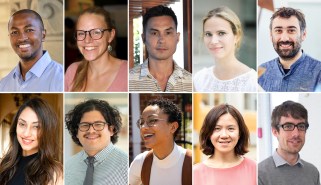 Science & Society
Science & SocietyBig questions inspire the scientists on this year’s SN 10 list
These scientists to watch study climate change, alien worlds, human evolution, the coronavirus and more.
-
 Computing
ComputingHuijia Lin proved that a master tool of cryptography is possible
Cryptographer Huijia Lin showed that the long-sought “indistinguishability obfuscation” is secure from data attacks.
-
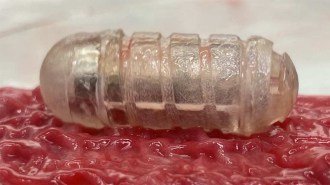 Health & Medicine
Health & MedicineThis robotic pill clears mucus from the gut to deliver meds
A whirling robotic pill wicks mucus from the gut, allowing intravenous drugs such as insulin to be given orally, experiments in pigs suggest.
By Meghan Rosen -
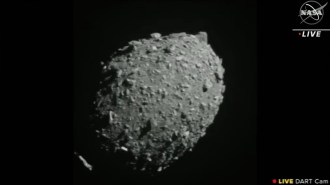 Planetary Science
Planetary ScienceNASA’s DART spacecraft just smashed into an asteroid — on purpose
If the first-ever attempt to knock a space rock off course works, it could provide a blueprint to protect Earth from a killer asteroid.
-
 Quantum Physics
Quantum PhysicsThis environmentally friendly quantum sensor runs on sunlight
Quantum sensors often rely on power-hungry lasers to make measurements. A new quantum magnetometer uses sunlight to measure magnetic fields instead.
-
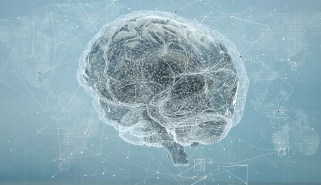 Neuroscience
NeuroscienceAn AI can decode speech from brain activity with surprising accuracy
Developed by Facebook’s parent company, Meta, the AI could eventually be used to help people who can’t communicate through speech, typing or gestures.
-
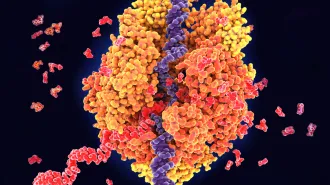 Tech
Tech50 years ago, genes eluded electron microscopes
In the 1970s, scientists dreamed of seeing genes under the microscope. Fifty years later, powerful new tools are helping to make that dream come true.
By Nikk Ogasa -
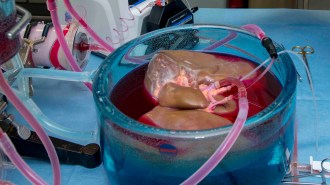 Health & Medicine
Health & Medicine50 years ago, scientists hoped freezing donor organs would boost transplants
In the 1970s, biologists hoped to freeze organs so more could last long enough to be transplanted. Scientists are now starting to manage this feat.
By Asa Stahl -
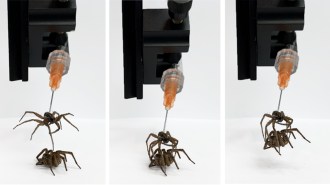 Tech
TechScientists turned dead spiders into robots
In a new field dubbed “necrobotics,” researchers used a syringe and some superglue to control the dead bodies of wolf spiders.
By Asa Stahl -
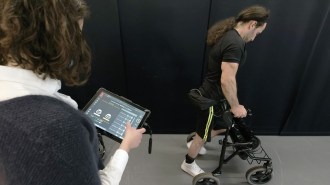 Neuroscience
NeuroscienceSpinal stimulation gives some people with paralysis more freedom
Methods that stimulate the spine with electrodes promise to improve the lives of people with spinal cord injuries, in ways that go well beyond walking.
-
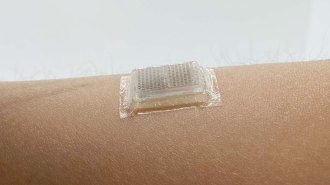 Health & Medicine
Health & MedicineThis stick-on ultrasound patch could let you watch your own heart beat
A new, coin-sized ultrasound probe can stick to the skin like a Band-Aid for up to two days straight, marking a milestone in personalized medicine.
By Asa Stahl -
 Environment
EnvironmentHow to make jet fuel from sunlight, air and water vapor
Solar kerosene could one day replace petroleum-derived jet fuel in airplanes and help stabilize greenhouse gas emissions.
By Nikk Ogasa